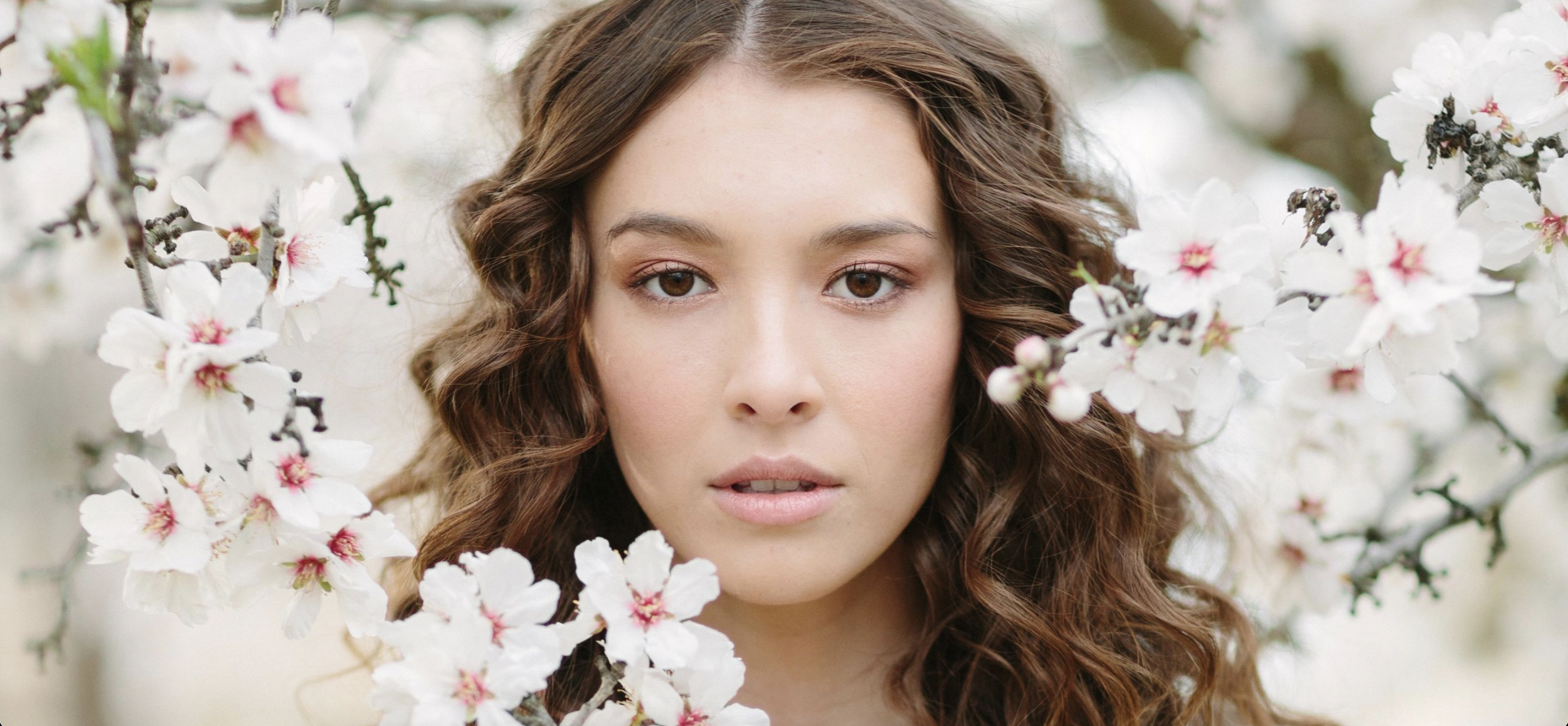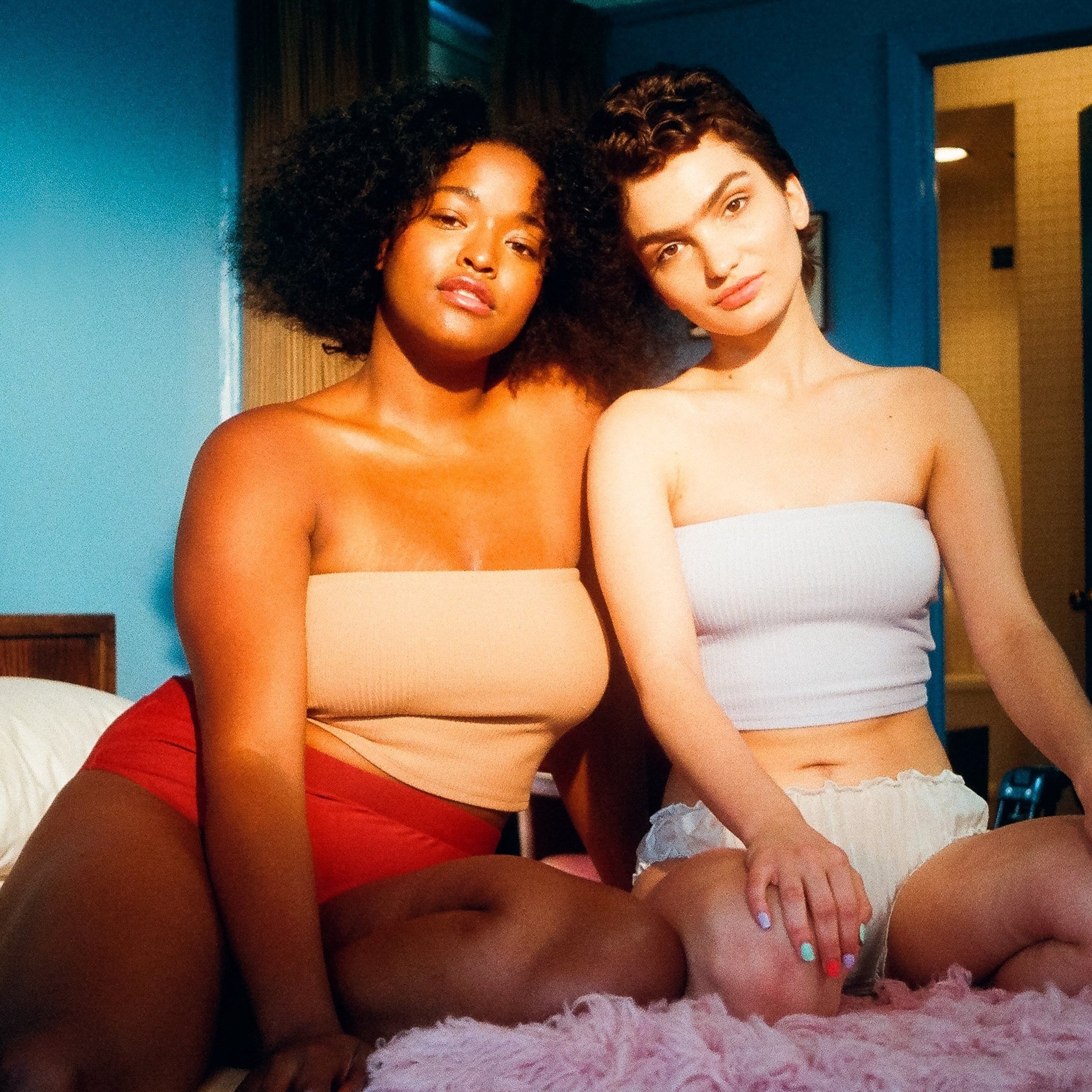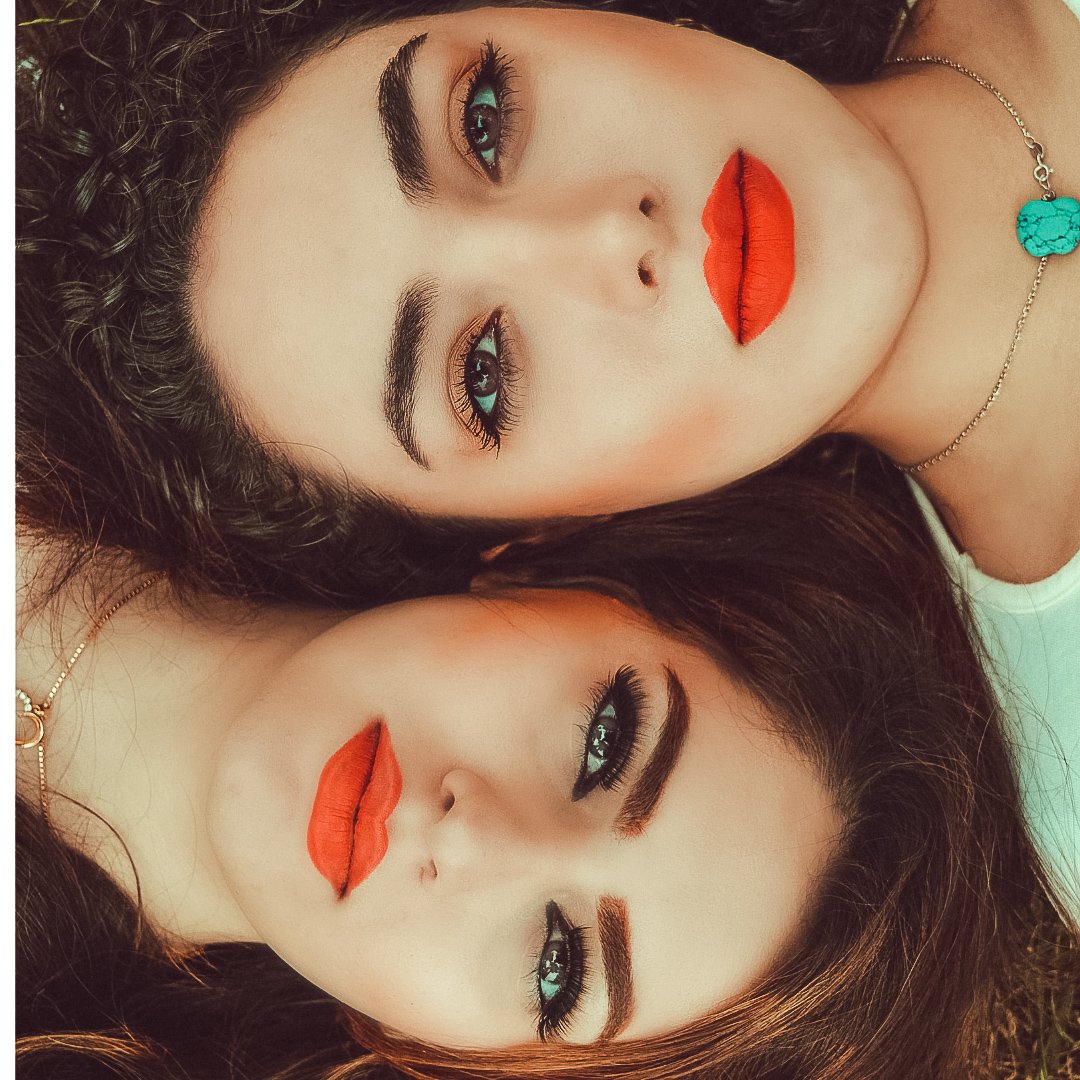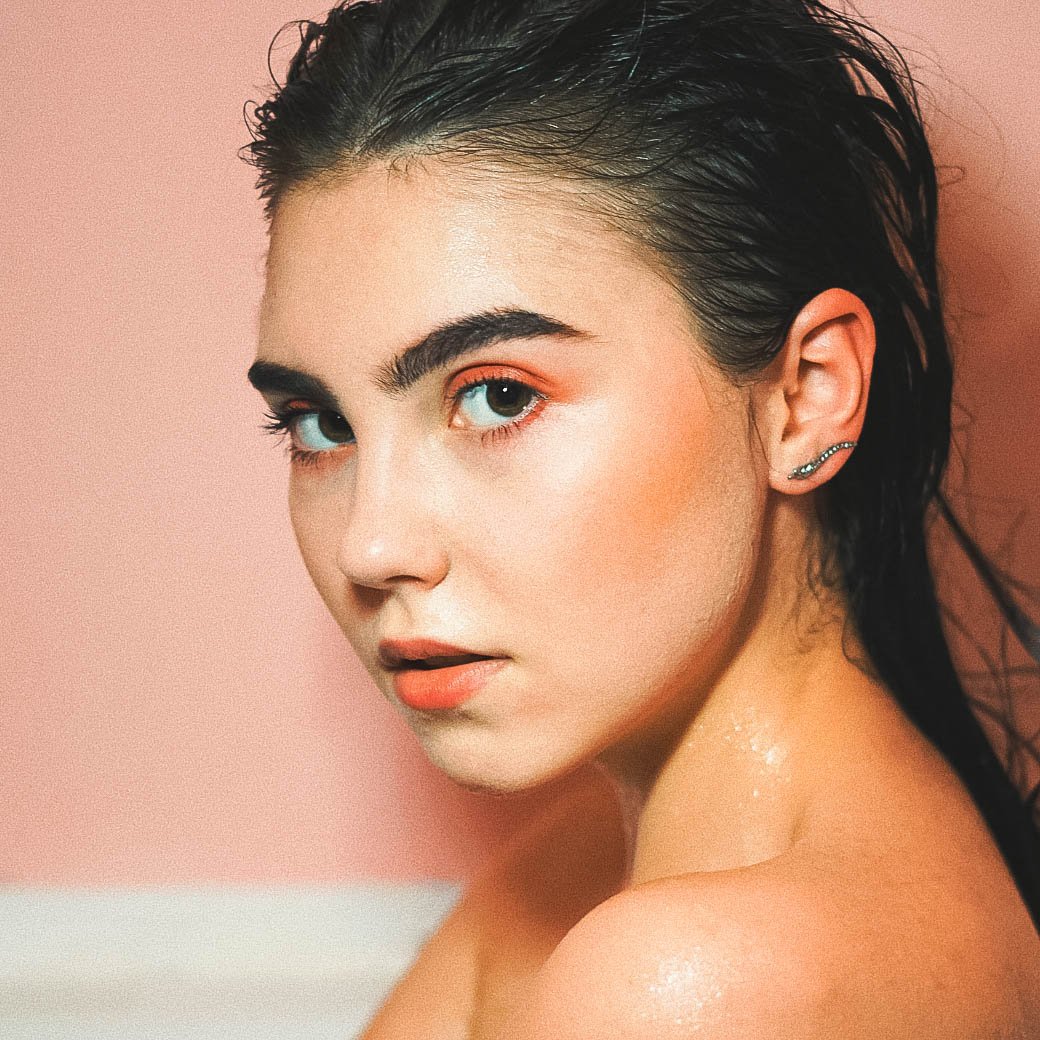Energy Healing & Female Empowerment in the Wedding Industry
How María Calderón Uses Wedding Makeup & Photography to Unite Women
This is what I know about her before our interview: María Calderón is a Nicaraguan-born artist with a unique take on the wedding biz who hates the term “bridezilla.”
I also know that what comes across most strongly when I look at her images is a subject lit up from the inside out—firmly rooted in a place of power, inner beauty, and true belonging.
Join us to learn how María uses photography as a journey of self-discovery to reveal where the real beauty lies.
What does beauty mean to you?
Beauty, for me, is not something that you can see; it's something that you can feel. It’s my goal to make women feel beautiful. I'm not passionate about makeup; I’m not even passionate about photography. It’s about cultivating inner beauty within women.
Part of dismantling the patriarchy is that we’ve been told a lie that we're not beautiful or powerful. And even though it might seem superficial as a mission, it's a good way to come in and support women in finding themselves.
It's really easy to propagate inner beauty in an awakened person. But many women searching for my services are looking for a superficial way of validating themselves, and I turn it around into a journey of self-discovery to reveal where the real beauty lies—in their uniqueness.
How did you get into this line of work?
This work is part of my healing journey. I’m from Nicaragua—a country with a lot of war. At one time, we lost 50% of the male population, and out of that tragedy emerged a matriarchy. My mother and my grandmother were real independent, badass women. Many people would come to my grandma because she was a leader in her group of women.
Women who lost their husbands would come to my grandma for advice or even to ask for money. My grandma wouldn’t give them money, but she’d facilitate a way to help them make their own money. In one of those instances, she gave this woman money to learn how to do hair and makeup so she could open a salon in the living room of her house.
I remember gathering there in a context of beauty but really in the unification of female power and women helping each other. There was crying and laughing and joking and fighting. It was a place where I felt safe—I think that's why I went into this line of work.
What experience do you offer brides and bridal parties?
When I come into this environment of women, I come in very humble. I've already established trust with the bride, so we’re a unit. And when it comes to the other ladies who don't know who I am or have a preconceived idea of who the makeup artist is, I come in and just start asking for stories.
So my first question is, “how did you meet the bride?” And all of a sudden, the walls come down because I go to the core of why they're friends. I take them down memory lane. A lot of funny stories arise as the walls come down, and any attitudes and insecurities go away in that context.
Then I come in and set expectations. I tell the bride, “I'm not a typical makeup artist. I’m not here to make you look like someone else. I'm trying to figure out who you are so you can be the best you today.”
My work with her is very sensual: it's about feeling, hearing, tasting, and seeing. It's about slow living. In a society where women are conditioned to do everything, including taking care of the men, I want to guide women into slow, sensual living.
On the day of the wedding, I go into a very childlike attitude where I just point out the beauty to her all the time. “Look how beautiful the flowers are!” We go into detail together to savor the moments. And I try to stimulate all of her senses on the wedding day.
I tell her to not only prepare mentally but prepare physically. She’ll need foods she can just pop in her mouth. So I tell her to have little finger sandwiches or a fruit platter available so she won’t feel bloated or full but will have things to nourish her throughout the day.
I also try to play beautiful music, or I tell her to do a playlist that will take the wedding party down memory lane. My job is to surround her with beauty and stimulate all her senses. Beautiful music, things to look at, yummy and delicious food to taste. Engaging the senses grounds you so you can be thankful to be there in the moment.
Let’s talk about the term “bridezilla.”
When I do talks at makeup artist conferences as the bridal expert, my talk is about how there's no such thing as a bridezilla. Someone is not doing their job, or there's a bride not being heard. That’s basically what it is.
It’s another way society takes away something that is beautiful for us. It’s a society that doesn't celebrate women, trying to put a negative label on a beautiful day that we deserve.
We are sisters and daughters, and some of us are going to become mothers; we take care of others. We deserve a f***ing day.
And not only that, every bride I've encountered is not thinking about the wedding as all about her. It’s about trying to make mom and dad happy; there’s a lot of politics. All she wants is to have a really awesome party where she can celebrate her love, and she also wants to accommodate everybody.
It’s an unappreciated job to be the bride, and people don't often understand that it's not like a casual backyard bbq—planning a wedding is like putting on the Oscars. There’s a lot of logistics. When I arrive and can feel that the bride is upset, I can always trace it to a vendor who’s late, a family member giving her attitude, or someone who’s not fulfilling her expectations.
To label her a bridezilla is a disservice to women and another way that society takes away our celebration.
Tell me how you care for a bride in a difficult emotional space.
In order for me to get into a space where I can take care of the bride, I have to tend to myself. I come from a place of complete bond and trust between the bride and me. The consult before the wedding is when we do all the bonding, so when I show up on the day, were already a unit.
The most important thing for me is that the bride knows I have her back. No matter what. So I become her mom, her sister, her maid of honor—all in one.
It’s my job to tend to all the immediate needs she has. And it's little things that make the difference. Like if a pearl fell off her dress. On a normal day, a pearl falling off the dress might not feel like such a big deal. But the big deal isn’t that the pearl that came off the dress; it's about all the things she's been carrying with her up until that moment.
So I carry an emergency kit, and whatever happens, I'm like, “No prob, we’ll get this fixed.” Even if she wants to minimize it, I set a boundary and say, “No, we’re going to do this.” Those little things make her feel seen, heard, and validated.
I also memorize the timeline. I tell her, “Don’t worry about anything; I'll let you know when the next thing comes. You're going to be on time, everything will be okay, and you don't need to look at the timeline right now.” I remind her that she needs to go to the bathroom before we put her in the dress. Little things like that.
Shop the FACE Bridal Collection
How do you think about your relationship with these brides?
The way I put myself in that place of servitude is because my clients are not clients; they're sponsors. I am a full-time artist, and I have a beautiful studio in San Francisco. I travel the world. I have a van and can go off on a 3-week trip in the middle of wedding season like the one I’m on now because I have sponsors. Brides are sponsoring my artist lifestyle.
That I can actually make a living and have luxury in my life is because of these women. So when I'm working with a bride, I remember that it’s all thanks to this woman today. The least I can do is help give her the best day of her life, and it doesn't cost me that much in the exchange of energy. The reason my brides love to sponsor me is that they feel the love—and you can't fake that.
In the particular crisis women are facing after the recent Supreme Court rulings, how do you use your authenticity to empower other women?
We have marched; we have written poems and songs; we have done the legislation; we have voted; we have organized—everything. But what’s going to get us a seat at the table is actually economic power.
So as a photographer, I empower women to have their own financial independence. I have so much freedom because I don’t work for anybody else. We don’t have to adhere to societal norms once we become financially independent.
For me, it’s all about supporting women to gain financial independence. I can do this by providing photography services for women who want to start a business. Because a lot of women have the money to develop the product, maybe do a website, but they don't have money for marketing.
Part of the reason I left my apartment and minimized my expenses is because when I come across a badass woman who’s doing it, and she needs support in the marketing department, I don't want to say, “No, you can't afford me,” or “I can't because I have to think about paying rent in San Francisco.” So having that freedom means I can be generous with my time and my talent to support other women.
Written by
Ella Marcantonio





















